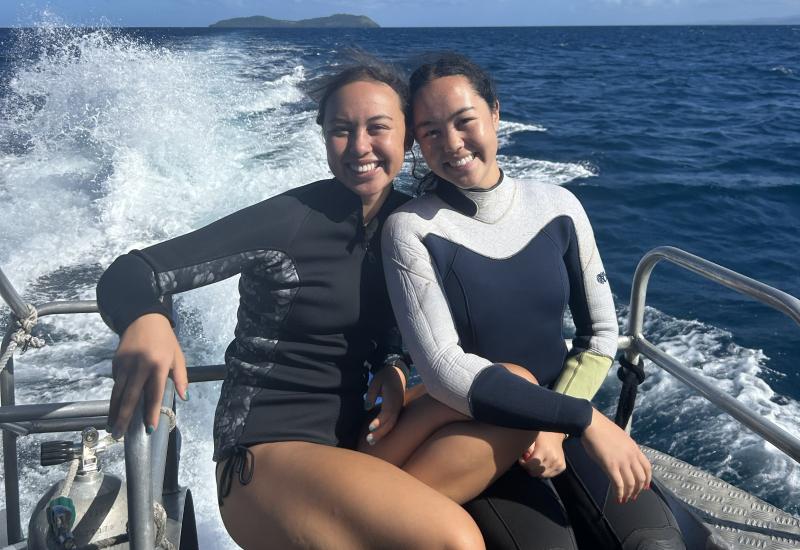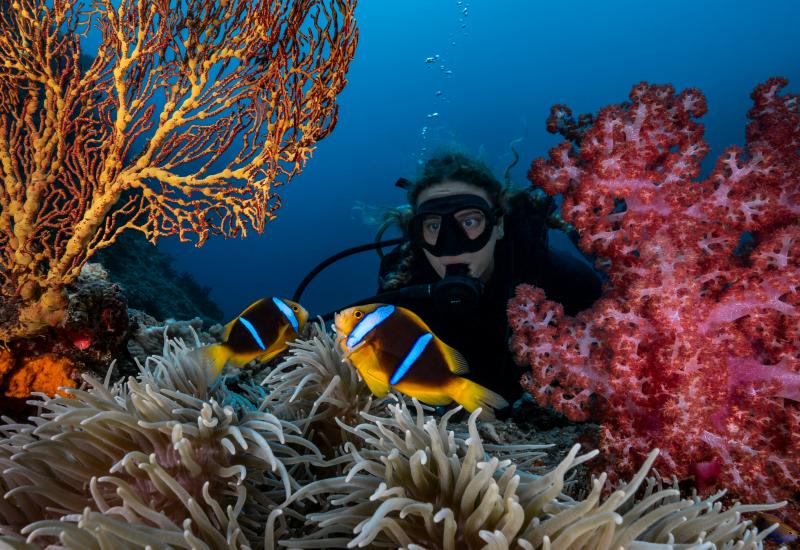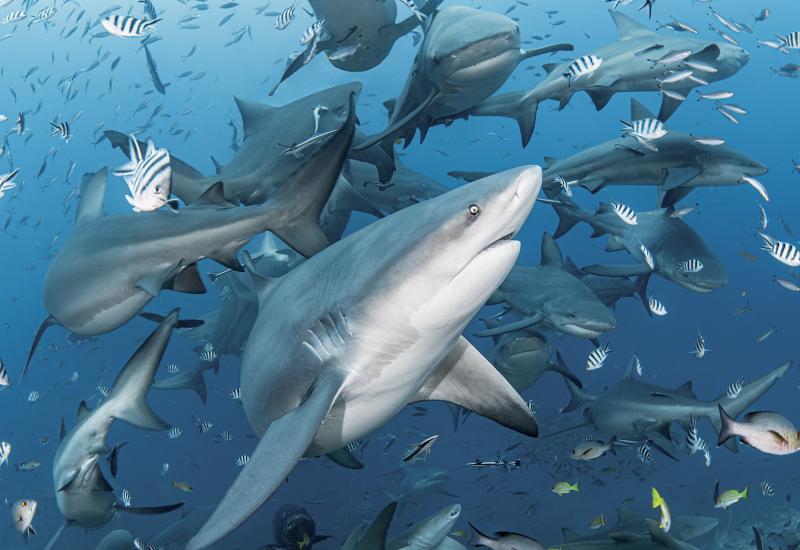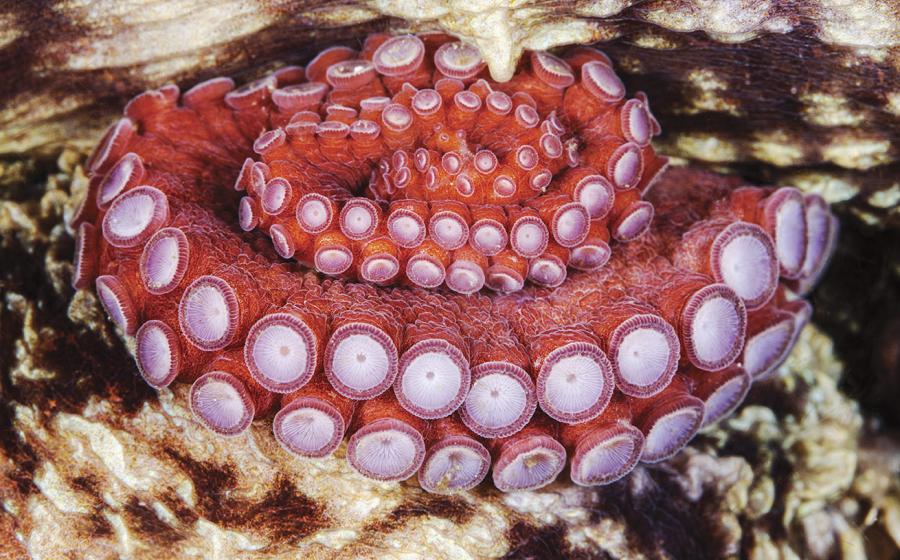SharkSchool Transforms Fiji's Cathedral Shark Dive into Classroom
I’m kneeling on the bottom, 65 feet below the ocean’s surface, when it dawns on me that I’m likely surrounded by 12,250 razor-sharp teeth. Am I doing my math correctly? It’s a question I frequently ask myself back on land, but this is a first underwater. Let’s see: 350—the average number of teeth in the jaws of a bull shark—multiplied by about 35 bull sharks. I’m surprisingly calm as I replay shark expert Erich Ritter’s words in my head: “There is no such thing as a dangerous shark, just dangerous situations.”
“There is no such thing as a dangerous shark, just dangerous situations.”
After eight dives at the Cathedral dive site in Fiji’s Beqa Lagoon, it’s clear this is not one of the dangerous situations Ritter was referring to. The baited shark dive draws at least seven species of shark on any given day: bulls, lemons, nurses, gray reef, blacktip and whitetip reef sharks—oh, and if you’re lucky, maybe a tiger shark…or three.
My classmates on this trip are drawn to Beqa Lagoon by Ritter’s SharkSchool, which has developed a cultlike following. Shark lovers Alvaro Poblete and Izzy Sajdok, from Sydney, Australia, are attending for their second time, and plan to return for the 2020 event.
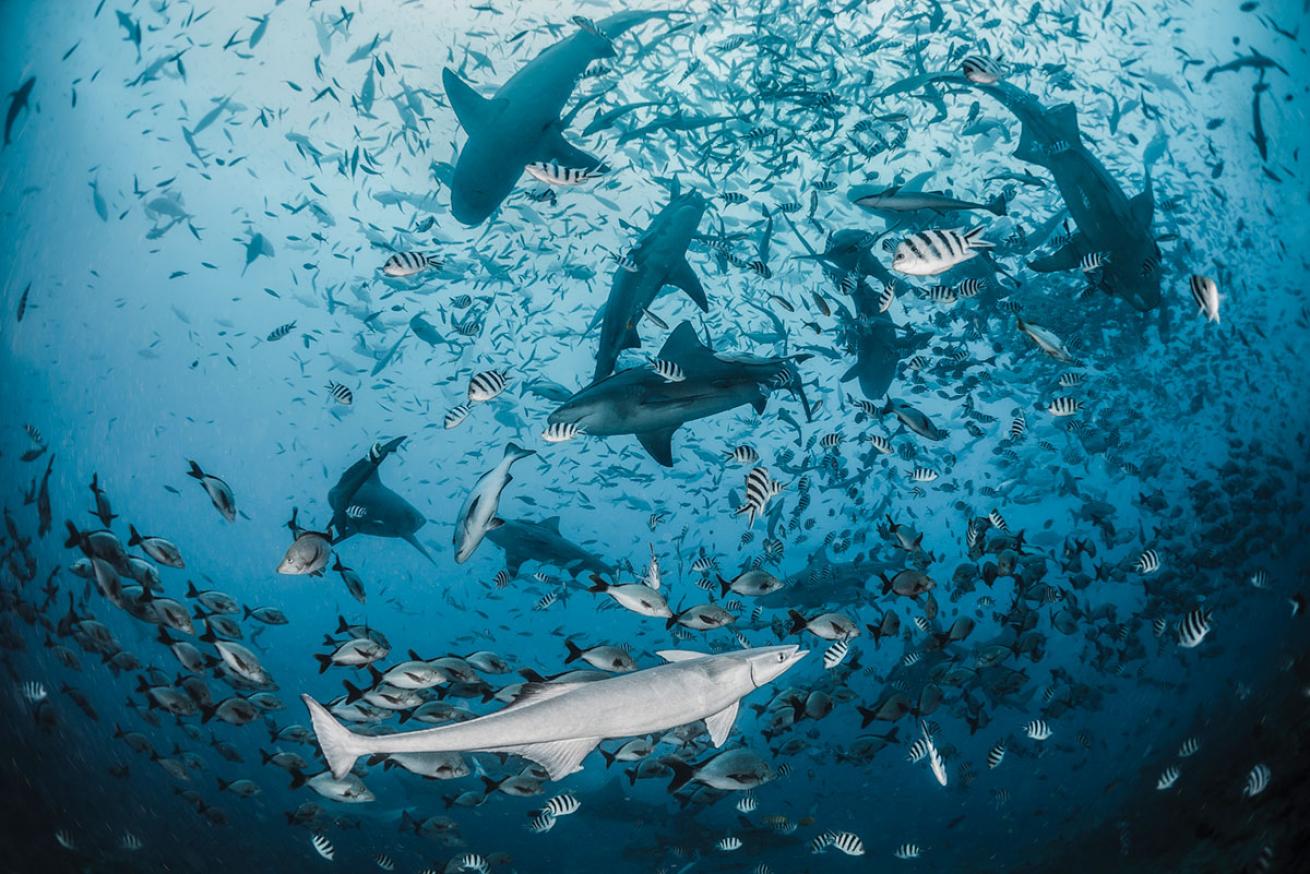
David LoprestiSharks dominate the fray at Cathedral, a dive site in Fiji's Beqa Lagoon.
First-time Fiji visitors Sarah Insull and Stephan Gnatiuk, from Cleveland, didn’t need much convincing to book the trip after seeing tiger shark images online, but Gnatiuk reveals the biggest selling point was Ritter himself. “It would be awesome to learn from Erich Ritter, who has a Ph.D. and has been doing this for so long,” Gnatiuk tells me.
Ritter has been diving and studying sharks for more than 27 years, and has been running SharkSchool since its inception in 1996. “There’s no other dive site like this in the world,” he says. It’s an ideal spot to observe shark interaction, which is why this lagoon, and more specifically the Cathedral site, was selected as one of the stops on Ritter’s annual SharkSchool tour around the world.
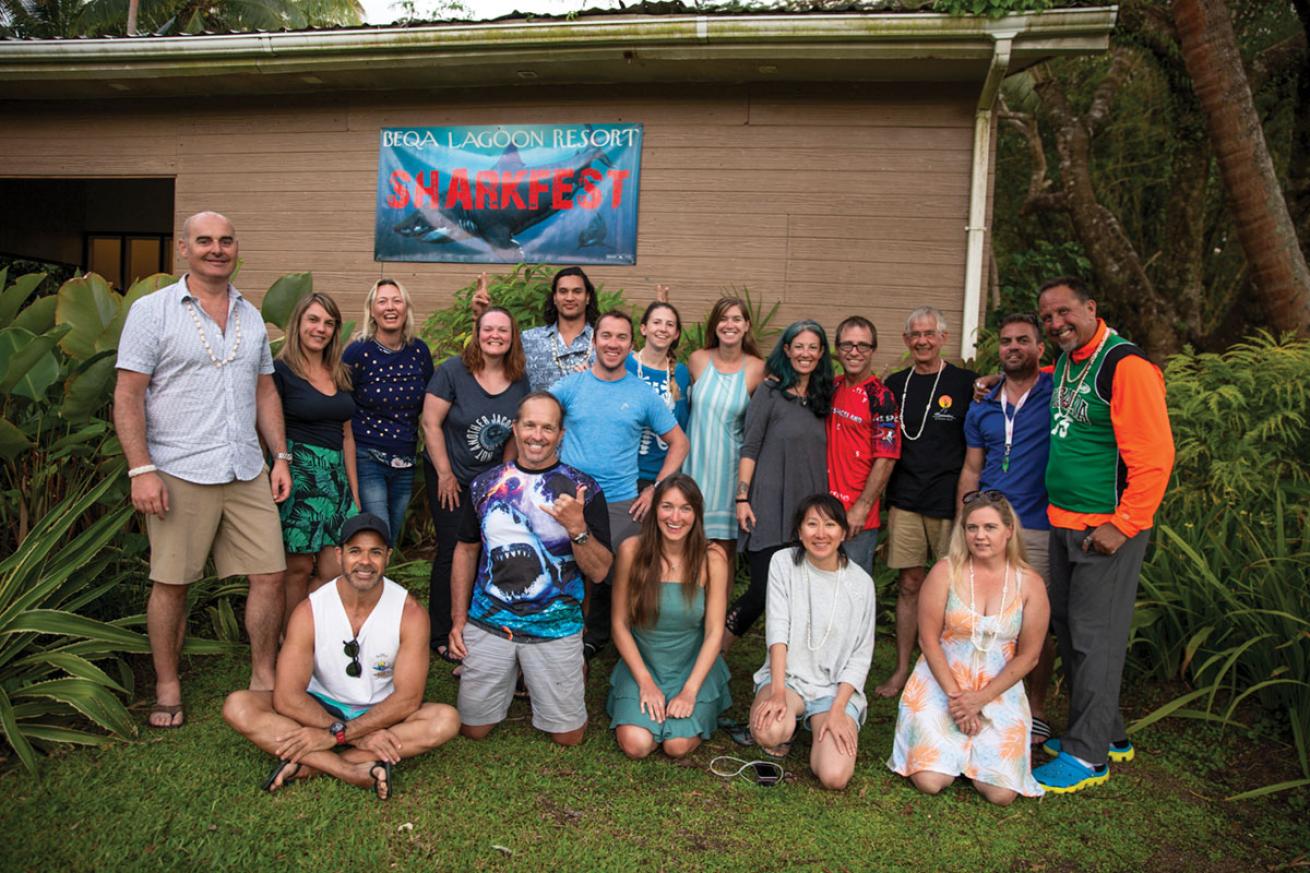
Courtesy Beqa Lagoon ResortBeqa Lagoon Resort in Fiji plays host to shark behaviorist Erich Ritter’s weeklong SharkSchool, which draws devoted pupils from around the world to dive and learn about these apex predators.
SharkSchool is a weeklong event that focuses on educating participants on how to safely interact with sharks and identify their behaviors in the water. Each event features unique opportunities to interact with sharks in their natural habitat. In Fiji, SharkSchoolers are ushered away on private boats by day to dive with bull sharks and tiger sharks. At night, we study the sharks’ behavior patterns in a classroom setting and learn tips for safely interacting with them in a number of different situations, lessons we’ll bring into the next day’s dive. Sharks, I learned, are like humans in many ways. Just as each person you come in contact with behaves differently, sharks of the same species can behave differently in the same situation.
My first dive at Cathedral is like a flashback to my first day of high school— I’m excited, but anxious to meet my peers. Except, today, among my toothy peers are two of the four most aggressive shark species in the world, according to many experts. But ask Ritter, and he’ll tell you “aggression doesn’t exist in sharks.” I’ve never met anyone so passionate about shark education. Ritter speaks about sharks like a doting dad gushes about his kids, and in our week diving together at SharkSchool, Ritter repeatedly denounces sensationalized media coverage of sharks. “If you want to understand these animals,” he says, “you have to be among them.”
“If you want to understand these animals,” he says, “you have to be among them.”
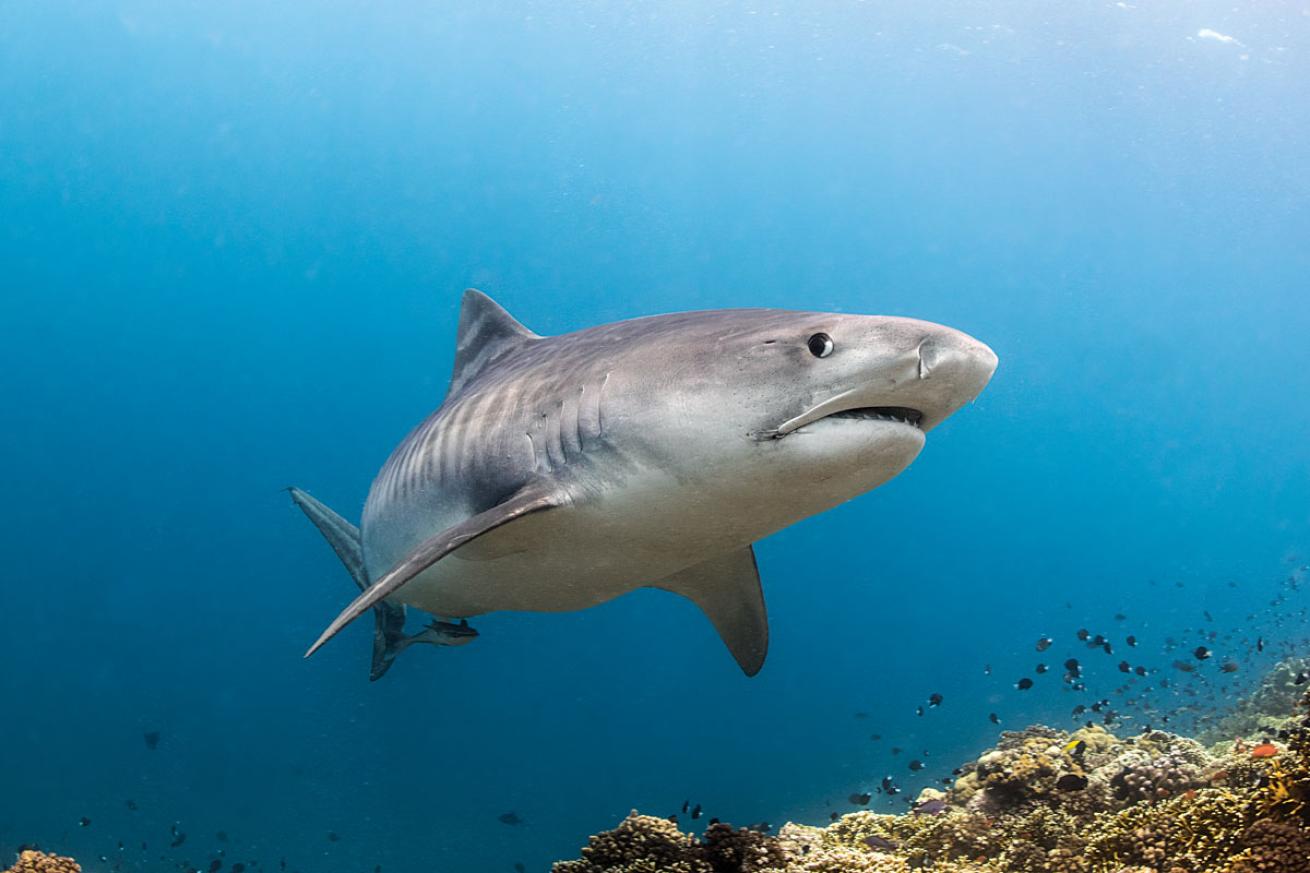
Steve PhilbrookOther sharks lay low when a tiger shows up.
To his point, after eight dives with these apex predators, I walked away unharmed—and a more confident diver. It’s amazing how quickly we become comfortable surrounded by bull sharks, picking up on their swim patterns as they circle the arena in front of us. Back at Cathedral, their feeding habits soon become routine. Then a tiger shark shows up, and we can feel the mood shift in the water. The bull sharks swim a little differently all of a sudden and keep their distance from the shark feeder. I watch as the 13-foot juvenile male tiger glides past me at arm’s length, making direct eye contact with me before swallowing a fish head whole.
Then he disappears and the bull sharks continue on. We’re back to a comfortable 12,250 teeth again.
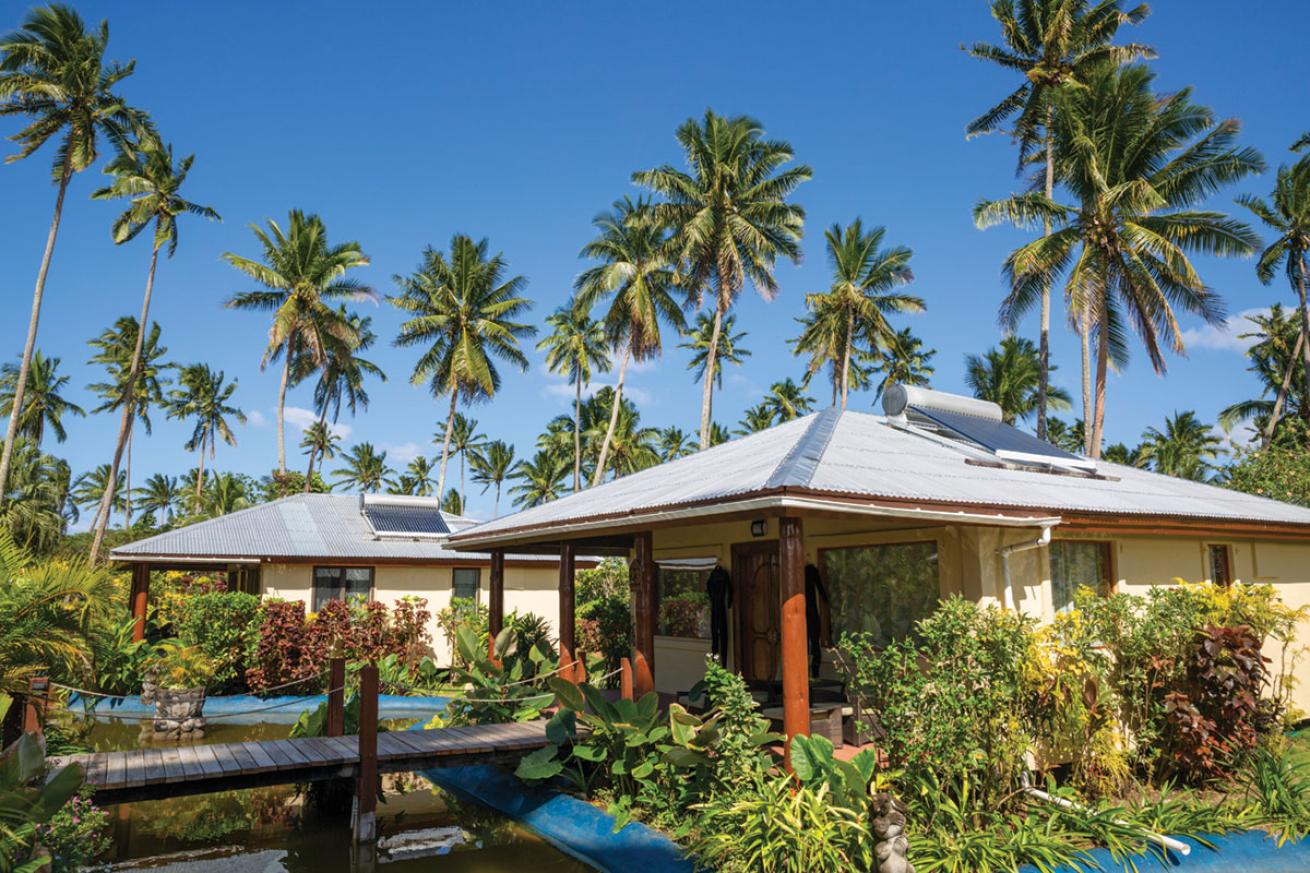
Becca HurleyBeqa Lagoon Resort features several accommodation options from oceanview villas to koi pond and garden bures like the ones pictured above.
Shark Fest 2020
Want to book a trip to this year’s event in Fiji? Here’s what you need to know.
When: August 29 to September 5
Where: Beqa Lagoon Resort, Fiji
What: Shark Fest is Ritter’s annual Fiji stop on the SharkSchool tour. Beqa Lagoon Resort partners with SharkSchool to offer an all-inclusive dive package that includes accommodations, meals and 10 shark dives at Cathedral (the resort is offering a 10 percent discount on new bookings). A typical week at the resort includes only one shark dive at the Cathedral site, so if you are looking to get max in-water time with the sharks, booking a Shark Fest package is the best value.
Keep in mind flash photography, video lights and bright colors are discouraged at Cathedral.
Getting There: Fly in to Nadi or Nausori international airports, and transfer by car to Pacific Harbour. From there, it’s approximately one hour by boat to the resort.
Divers Guide
Average Water Temp: Mid-70s
Average Viz: Expect 50-plus feet of visibility on most dives. Fiji experiences a rainy season from January to March, and another in December. As with any destination, an excess of rain can affect overall visibility; keep this in mind when planning your dive travel.
What to Wear: 3 mm to 5 mm wetsuit

